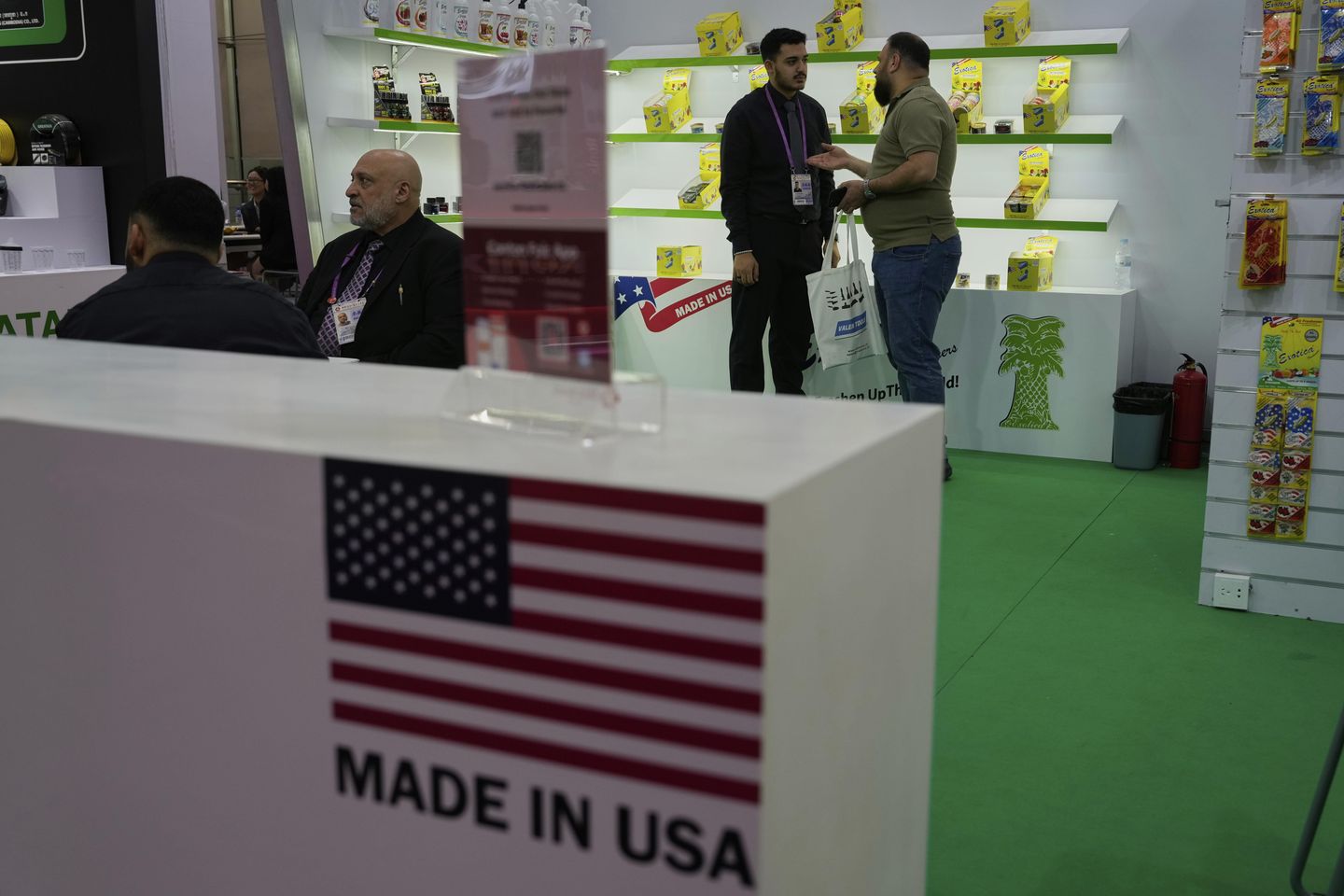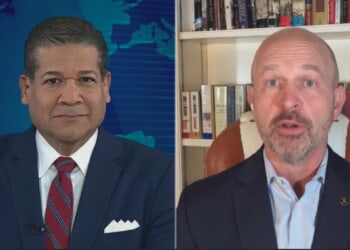
The White House said Tuesday that China must act first in devising a trade deal with the U.S., arguing the Asian superpower is dependent on American consumers and their spending power.
White House press secretary Karoline Leavitt said the “ball is in China’s court” as the world’s foremost economies impose tit-for-tat tariffs on each other’s goods.
“China needs to make a deal with us. We don’t have to make a deal with them,” she said, characterizing it as a statement directly from Mr. Trump. “There’s no difference between China and any other country, except they are much larger.”
Earlier this month, Beijing retaliated against Mr. Trump’s decision to impose hefty levies on China as part of his “Liberation Day” trade plan.
Angered by the response, Mr. Trump escalated his tariffs to 125%, on top of a 20% tariff on Chinese goods related to fentanyl trafficking.
China responded with a 125% tariff on U.S. goods and said it would ignore future increases by the U.S. side. It also blocked exports of critical rare earth minerals and magnets that are mostly produced and refined in central China.
Chinese President Xi Jinping can ill-afford more economic turmoil at home but he has cultivated an image as a strong leader who is unlikely to blink first in a U.S. trade war.
Mr. Trump is standing firm, too, saying China and its exporters are the ones who will suffer.
“Every country wants what we have, the American consumer. They need our money,” Ms. Leavitt said.
Mr. Trump is “open to a deal with China,” she said, “but China needs to make a deal with the United States of America.”
The president is digging in against China despite a 90-pause in reciprocal tariffs on dozens of other nations. Mr. Trump granted the pause to allow time for negotiations.
The administration says many nations are sending negotiators to Washington to work out a deal that would reduce trade barriers to U.S. goods.
Japan’s Economic Revitalization Minister Akazawa Ryosei will be in Washington from Wednesday to Friday for trade negotiations with U.S. Trade Representative Jamieson Greer and Treasury Secretary Scott Bessent, according to NHK News.
“There’s a lot of work to do, we very much understand that, but we do believe that we can announce some deals very soon,” Ms. Leavitt said.
In the meantime, agricultural workers have raised concerns that the tariffs will make exporting their soybeans and other products harder, hurting their bottom line.
Mr. Trump paid out $23 billion in subsidies from the Department of Agriculture to farmers and ranchers during his first term, and his team is considering new assistance.
“Our farmers are GREAT, but because of their GREATNESS, they are always put on the Front Line with our adversaries, such as China, whenever there is a Trade negotiation or, in this case, a Trade War,” Mr. Trump wrote on Truth Social. “The USA will PROTECT OUR FARMERS!!!”
Ms. Leavitt said Tuesday that “relief is being considered” for farmers, noting that Agriculture Secretary Brooke Rollins had spoken to Mr. Trump about it.
Wall Street markets are seesawing this week as investors try to digest the ups and downs of Mr. Trump’s trade strategy. Stocks have stabilized compared to the massive sell-off that dominated the days following Mr. Trump’s tariff rollout, but the path forward remains uncertain.
The Dow Jones Industrial Average fell 156 points, or roughly 0.4%, on Tuesday while the S&P 500 and Nasdaq fell 0.17% and 0.05%.
Former National Security Adviser John R. Bolton, who had a falling out with Mr. Trump in 2019, said the U.S. is ruining its credibility with key allies.
“The one country that really deserves a trade war, China, we’ve put them in a much better position strategically by going to war on tariffs with our best friends, whereas if we had all joined together, maybe we would have had an impact on China’s behavior,” he told CNBC on Tuesday. “So this is not just an economic blunder — which I think it clearly is — it’s a strategic blunder that’s going to cost the United States dearly if this tariff policy isn’t reversed.”
• Mallory Wilson and Seth McLaughlin contributed to this story.




![Jasmine Crockett Justifies Mass Illegal Immigration With Bizarre Argument [WATCH]](https://www.right2024.com/wp-content/uploads/2025/03/1742007023_Jasmine-Crockett-Justifies-Mass-Illegal-Immigration-With-Bizarre-Argument-WATCH-350x250.jpg)
![Red Sox Fan Makes the ‘Catch of the Day’ with Unconventional ‘Glove’ [WATCH]](https://www.right2024.com/wp-content/uploads/2025/04/Red-Sox-Fan-Makes-the-‘Catch-of-the-Day-with-350x250.jpg)

![NYC Tourist Helicopter Falls into Hudson River, Siemens Executive and Family Among Those Killed [WATCH]](https://www.right2024.com/wp-content/uploads/2025/04/NYC-Tourist-Helicopter-Falls-into-Hudson-River-Siemens-Executive-and-350x250.jpg)








